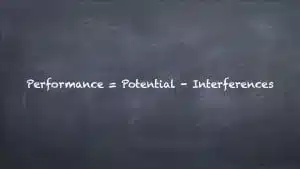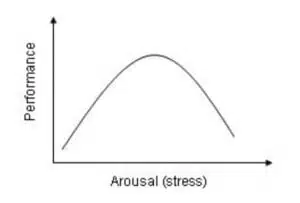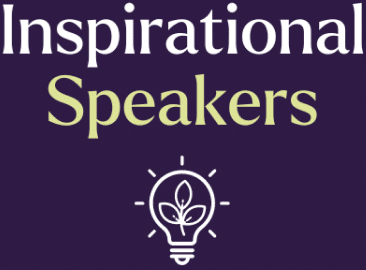What the military taught me about mindfulness – Sarah Furness
Sarah Furness is a Former Combat helicopter pilot and Keynote speaker, Helping leaders to perform and thrive “under fire”.
Sarah has created this blog on what the military taught her about mindfulness, and it is well worth a read!
The more I think about it the more I have to grudgingly admit that the military is actually pretty mindful. I had secretly enjoyed setting myself apart from the institutionalised horde. Making lofty statements such as “I left the military because I’d outgrown it.” “I felt it was time to spread my wings” And to certain extent it’s still true for me. I did feel that in order to reach my full potential, and to start the “military grade mindfulness” revolution that I think the world so badly needs, I needed to step outside of a large unwieldy organisation steeped in tradition. But the more I reflect, the more I realise that “military grade mindfulness” is so much more than just a catchy advertising slogan. It is a witness statement to the 20 years of world class training I received, of which so much more than I could ever have imagined, was a form of mindfulness.
The military training and the culture is geared towards professional effectiveness above anything else, including job satisfaction and wellbeing. And so in that sense it seems like the military is about as far as you can get from mindfulness. But in training its people to perform consistently and skilfully under pressure, I believe the military stumbled upon some powerful mindfulness strategies that can be applied to other businesses.
First let’s examine how we maximise performance.
Performance = Potential – Inteferences
Put simply if you want to perform your best, you need to reduce the potency or volume of things that interfere with that performance. Common interferences might be things like fatigue, intoxication, stress, and distractions. It is on the last two I will focus on now.


Pressure v stress
Anyone who has been through military training will be able to tell you about the Yerks Dodson curve. That is to say that a certain amount of pressure is GOOD for performance, but when the pressure exceeds our ability to deal with it, it tips over the edge and become stress. And our performance plummets. So we KNOW that stress interferes with peak performance.
Here’s the science as to why…
When we are stressed the brain prioritizes information from the amygdala and limbic region and reduces access to the more rational and creative part of our brain, the frontal lobe. Which means it’s very hard to problem solve, assimilate information and retain any kind of perspective. Put simply, stress interferes with our ability to think. Military training seemed to cater for that though.
Now I’m not saying that the military got everything right here. Being separated from my newborn son, having Christmas cancelled, and being nagged to death by my flying instructor (“just be better”) added their own levels of stress that I could have done without. But what it DID get right was training me ad nauseam in peace time, so that when the bullets were flying overhead and the stress response was activated, my reactions were already trained into me. I didn’t have to THINK about what I was doing. I just did it. And stayed alive.
Important point – training under stress does NOT increase your resistance to stress.
Do not confuse training FOR stress with training UNDER stress. Cortisol, (the “stress” chemical) increases negative thinking which produces more cortisol (a primitive response designed to keep you looking for more threats). So stress actually produces more stress. Nor does training under stress improve your performance – recall the frontal lobe doesn’t get much of a look in when stressed so very little learning takes place. But you CAN develop Healthy Automatic Behaviours in Threatening Scenarios (HABITS… like what I did there?) by training the mind in moderately pressurised non-threatening scenarios. This is what the military got right and this applies equally well to the pursuit of mindfulness. That is to say, if you want the mind to perform well under stress you need to train your mind rigorously when it isn’t stressed. Train hard, fight easy.
What I would have like to have seen more of, rather than just training us to perform when stressed, would have been to increase our resistance to stress in the first place. So not only would we perform better, we’d actually feel better too. You can train your brain to be more resistant to stress AND to recover more quickly from stressful scenarios, all through mindfulness training. Which is why I’ve taken best of military training and the best of mindfulness to give you both.
Multi-tasking v uni-tasking
You know you can’t multi-task right? I mean it. I know we live in a society that seems to thrive on it, demand it even. But your thinking brain can’t be in two places at once. All it can do is switch from task to task very quickly, which takes up valuable time (accounting for a whopping 2 hours each day in lost output) and increases our stress levels (which further decreases performance). Conservative estimates say that multi-tasking accounts for around a 40% decrease in performance. So multi-tasking is a HUGE interference.
And I think the military knew that. Sort of. During our training I was constantly being fed multiple injects whilst trying to fly upside down into Newcastle International (true story). And generally doing them badly. But over time I got better. Why?
Because after hour and hours of training, certain actions became AUTOMATIC.
H.A.B.I.T.S if you will. They say they can teach a monkey how to fly…eventually. And I’m the proof. Over time I developed the ability to operate the radio AND keep the aircraft in a straight line. Sometimes I even managed to navigate to the correct airport. Because I DIDN’T HAVE TO THINK ABOUT FLYING THE AIRCRAFT. You see, given enough practice even flying a multi-million aircraft will become muscle memory. Which means the brain doesn’t have to think. Which means you’re NOT multi-tasking.
But here’s where the military gets a mindfulness gold star in my view.
I remember crashing into electricity wires whilst flying through a valley in Morocco. The canopy shattered and everything got very noisy in the cockpit. I was sure the wires were now wrapping themselves round the tail rotor and that spinning into the ground at 100G was imminent. I remember dreamily thinking “So THIS Is how I’m going to die” and feeling quite pleased it would all be over very quickly. Then I became aware of the 4 most mindful words I have ever heard in my military career. “Fly the aircraft, Sarah”. My instructor knew that I could only have my attention in one place and that needed to be on flying the aircraft. (An aircraft that was badly damaged and therefore had unpredictable handling characteristics) Not fantasising about my eulogy.

This is how we were trained. Fly the aircraft first. i.e. have your attention where you need it to be. Of course, we didn’t call it mindfulness back then, but make no mistake, this is EXACTLY what mindfulness is.
So what..?
So if you want to supercharge your performance the most effective thing you can do is to identify what’s interfering with it and then use mindfulness to reduce those interferences. Start by finding the ONE big thing that is dragging down your performance and do something about it. If you’re stuck where to start, bear in mind half of the population are stressed right now and that figure has been steadily rising for the last 10 years (with an exponential jump in the last year). So you would do well to begin by identifying mindfulness based stress reduction strategies. These strategies don’t have to be time-consuming (time pressure adds more stress after all). They can be amazingly simple. Such as replacing meetings with walking meetings and allow the resulting serotonin boost to bring down those cortisol levels naturally. And remember that mindfulness in any form is a skill that needs to be practised, so do as the military do, train train and train some more.
Sarah Furness offers a range of services to help develop bespoke mindfulness strategies that will perfectly complement your work environment. Book a free initial call with Sarah Furness and prepare to walk way with a range of performance-enhancing options that you can implement immediately.
Sarah has 20 years of military service as an RAF helicopter pilot, Squadron leader, mentor, and facilitator.
Sarah’s experiences as a combat operational commander, helicopter pilot, mother and coach has taught her that Intelligent capable people don’t always feel as strong as they look. Performance under pressure isn’t instinctive but rather a skill that can be developed with the right knowledge and tools.
Showreel

Contact us
Call us on 020 7993 2724 or click below to enquire and will will be back to you as soon as possible.
Past Blog Posts







